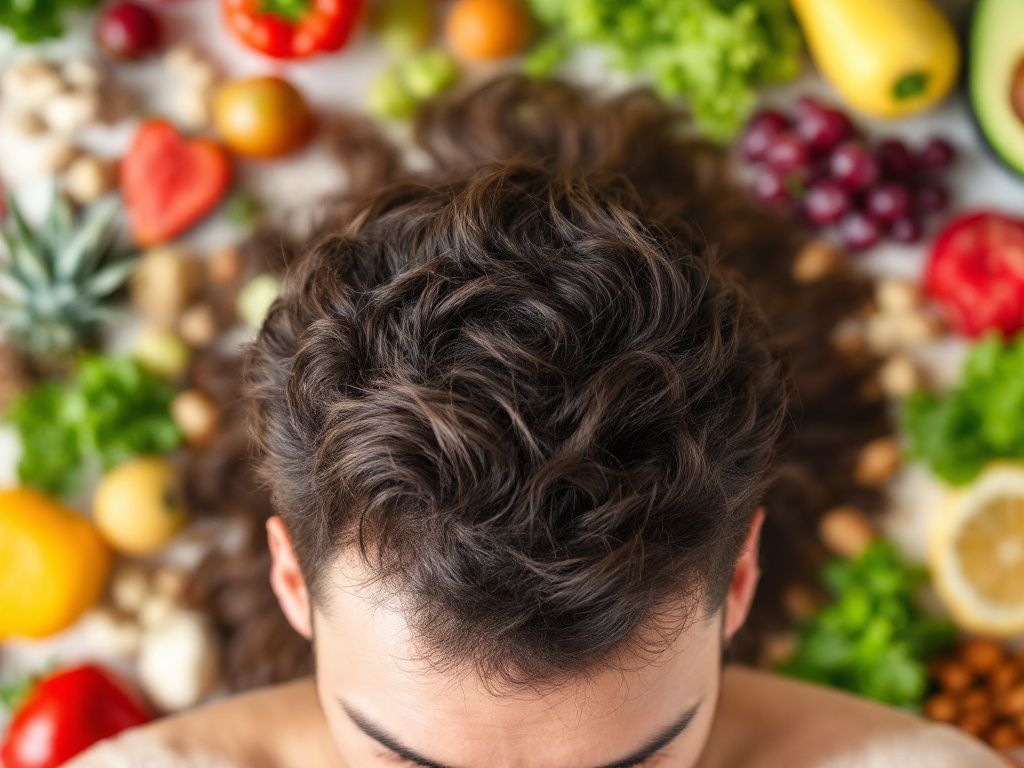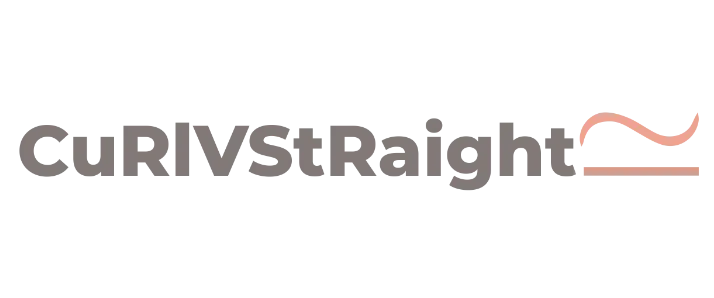
Let’s face it, hair loss can be a sensitive topic. You’re brushing your hair in the morning and see more strands tangled in your brush than usual, or maybe when you shower, you notice them washed down the drain. It can be worrying, and while several factors could be at play, today we’re going to chat about one possible culprit: diet. Yep, what you’re eating could be having a party upstairs— or a crisis.
What’s Brewing: The Link Between Diet and Hair Loss
Let’s start with the basics. The phrase “you are what you eat” is an oldie but a goodie, and when it comes to hair, diet plays a crucial role. Here’s the deal: without the right nutrients, your hair won’t have the support it needs to stay healthy and grow. Just like plants need water and sunlight, your hair needs nourishment from a balanced diet. We’ll get into specifics, but think of your hair as a very needy friend.
Hair 101: Heavy Lifters in Hair Health
Your hair grows from your scalp, and the condition of your scalp is supported by your overall health. When your body misses out on crucial nutrients, hair is often the first to suffer. Before your body moves on to more urgent internal repairs, hair falls low on its priority list. Let’s go over some of the big players when it comes to diet and maintaining those luscious locks.
Protein: The Hair Drill Sergeant
Hair is mostly made of keratin, a type of protein. So, protein is the Queen Bee here. If you skimp on protein, your body might prioritize other areas, and your hair might pay the price. You don’t need to drown yourself in steak—or sushi for that matter—but make sure you’re getting enough protein from sources like eggs, chicken, tofu, or beans.
Essential Vitamins: Hair’s Supporting Actors
Now, imagine a movie. Protein is your main star, but without supporting actors, the show can’t go on. This is where vitamins come in—like vitamins A, B, D, and E. For instance, vitamin B7 (or biotin) is famous for improving hair strength. But it doesn’t stop there:
- Vitamin A helps with skin glands making sebum, which conditions your scalp.
- Vitamin E contributes to protecting hair against oxidative stress.
- Vitamin D can sometimes help with new follicle creation.
See, each vitamin comes with its own charm and duties, making the overall performance stellar.

Minerals: The Quiet Power Players
After vitamins, minerals zip in quietly, doing mighty work behind the scenes. Iron, zinc, and selenium are instrumental. A deficiency can lead to quite the fallout – literally. Iron is critical for red blood cells to carry oxygen to your hair follicles. Zinc helps with tissue repair and growth, and selenium handles hormones impacting hair growth.
Omega-3: The Hair Whisperer
Then we have Omega-3 fatty acids which aren’t produced by the body but definitely help nurture healthy scalp circulation and moisture. The best sources for omegas are fatty fish, but they’re also hidden in chia seeds and walnuts. How nifty!
How Nutritional Deficiencies Lead to Hair Loss
Cutting to the chase, nutritional deficiencies in key areas trigger hair to shed. Picture this: your scalp is the lawn, and nutrients are the water. Without regular watering, it dries out. Similarly, a lack of essential nutrients results in thin, dull, and lifeless hair.
1. Iron Deficiency (Anemia)
The most common cause of hair loss related to diet is iron deficiency anemia. Without adequate iron, your body struggles to produce enough hemoglobin, impacting oxygen distribution. In translation: no oxygen, no flourishing follicles.
2. Protein Deficiency
As we discussed, skimping on protein means no keratin production, leading to weak hair. You might be able to cut down on the salon visits for trims, but not in a good way.
3. Zinc Deficiency
Zinc plays a crucial role in DNA and RNA production, essential for cell division. Yes, that’s a bit of science thrown in there, but really think of zinc as the toolkit for repairing and regrowing hair. Without adequate zinc, hair shedding and breakage can escalate.
4. Overall Malnutrition

An unbalanced diet lacking variety can lead to a combo of missing nutrients. And that amalgamation is a hair disaster waiting to happen.
Warding Off Hair Loss with Diet
At this point, you might be wondering, “Great, but what can I do about it?” Let’s explore a few actionable steps that can tuck your dietary hair care routine back in line.
You Are What You Eat: Building A Hair-Friendly Diet
1. Protein-Rich Selections
– Eggs, lean meats, and lentils should be your go-to. Make sure these are regularly present in your meals.
2. Iron Boosters
– Lean red meat, leafy greens like spinach and broccoli, or even chickpeas. Pair these with vitamin C sources—like oranges—to help iron’s absorption.
3. Rich in Omega-3
– Add sardines, salmon, chia seeds, and walnuts to your meals. Your scalp will surely thank you.
4. Vitamin Mingle
– Load up on fruits, nuts, and vegetables for a healthy dose of necessary vitamins. Consider B-complex supplemented foods like dairy and peanuts.

Daily Nutrient Goals (approximate values):
| Nutrient | Daily Goal for Hair Health |
|---|---|
| Protein | 50-75 grams |
| Iron | 18 mg |
| Zinc | 11 mg |
| Omega-3 | 1.1 g for women, 1.6 g for men |
Be Consistent: Form Good Habits
You don’t need to overhaul your culinary habits overnight. Start with small changes. Maybe add some nuts to your morning cereal or switch up that afternoon coffee for a protein smoothie. It’s more about consistency than tackling it all at once.
Stay Hydrated
Let’s not forget about water. Hydration isn’t directly linked to follicle strength, but a dehydrated body won’t function optimally. Aim for those pesky six to eight glasses a day, even if it means more bathroom visits.
What to Avoid: Common Mistakes
It’s easy to skip meals or cut out food groups in the name of dieting but refrain from drastic measures that could prevent nutrient intake. Remember:
- Avoid Excluding: Reducing too much of one food group to lose weight may create deficiencies. Balance is key.
- Limit Processed Foods: They’re fun, but high sodium levels could hurt your dietary balance.
- Dodge Sweets Overload: While delicious, high sugar can increase inflammation, potentially hurting hair follicles.
When to Seek Professional Help
If large clumps of hair are falling or you’re noticing significant thinning, diet tweaking is a good start, but it isn’t a magical cure-all. Sometimes genetics, stress, or underlying health conditions are at play. Consider consulting a healthcare professional for an insightful approach to uncover all potential factors.
Spearhead Your Health Journey
At the crux of it all, achieving a luscious mane is not about finding a one-stop solution but about understanding your body and its needs. By paying attention to what you feed your body, you’re not only potentially halting hair loss but also fostering a well-rounded health practice that’ll positively surprise you in many ways.
So, give this a try! Fix up your pantry, keep those meals colorful and varied, and who knows? It might just kickstart a new hair chapter for you. Trust me on this one.
Frequently Asked Questions
What foods can contribute to hair loss?
Foods that can contribute to hair loss include sugary foods, refined carbohydrates, fried foods, high-mercury fish, artificial sweeteners, and processed foods. These foods can cause hormonal imbalances, inflammation, and nutritional deficiencies that negatively impact hair health. For example, excessive sugar consumption can increase androgen levels, leading to hair thinning, while fried foods can cause an oily scalp and clog hair follicles[1].
How does weight loss affect hair loss?
Weight loss, especially rapid weight loss, can lead to hair loss due to nutrient deficiencies, stress, and hormonal changes. Crash dieting, very low protein diets, and weight loss surgeries can result in deficiencies in essential nutrients like iron, zinc, and protein, which are crucial for hair growth. This can lead to conditions such as acute telogen effluvium (TE) and other types of hair loss[2][4].
What nutrients are essential for preventing hair loss?
Key nutrients for preventing hair loss include iron, biotin, omega-3 fatty acids, vitamin A, vitamin C, and vitamin E. A balanced diet rich in these nutrients, such as foods like spinach, eggs, nuts, and berries, can help support hair growth and prevent hair loss. Additionally, a diet high in antioxidants and anti-inflammatory components, like the Mediterranean Diet, can also promote hair health[1][3][4].
Can excessive nutrient intake cause hair loss?
Yes, excessive intake of certain nutrients can cause hair loss. Overconsumption of vitamins like vitamin A, vitamin E, and minerals like selenium can lead to hair loss. For instance, excessive vitamin A can cause hypervitaminosis A, and high levels of selenium can lead to severe health issues and hair loss. It is important to maintain optimal levels of these nutrients to avoid adverse effects on hair health[4][5].
References- Foods That Can Cause Hair Loss Or Prevent It. Hair Doctors.
- Hair Loss After Weight Loss: Causes, Risks, Prevention. Healthline.
- An overview of the genetic aspects of hair loss and its connection …. PubMed Central.
- How Diet Affects Hair Loss. Healthline.
- Diet and hair loss: effects of nutrient deficiency and supplement use. PubMed Central.



Leave a Reply